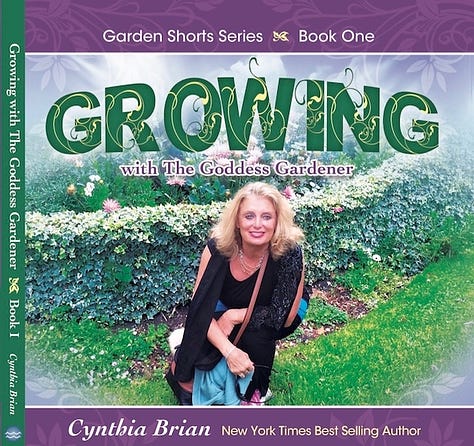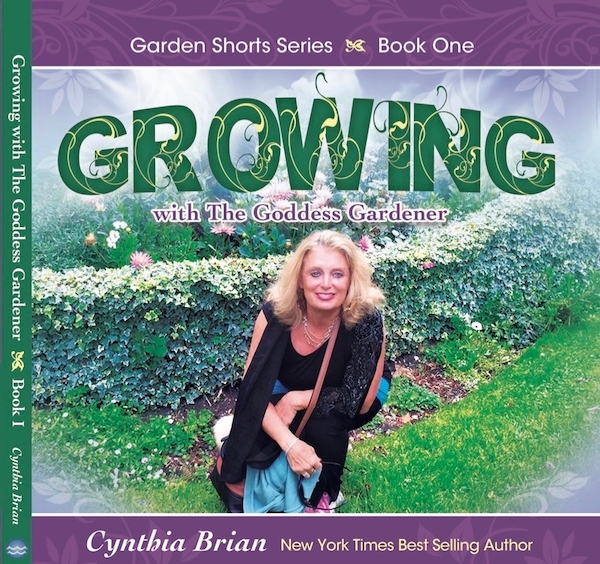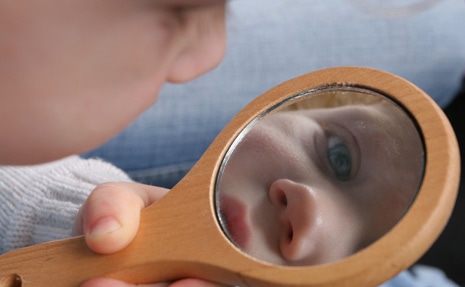“I rejoice when I see anyone, and especially children, inquiring about flowers, and wanting gardens of their own, and carefully working in them. For the love of gardening is a seed that once sown never dies, but always grows and grows to an enduring and ever-increasing source of happiness.” Gertrude Jekyll

How immensely fortunate I was to grow up on a farm where both parents were connected to the land and taught their five children to care for plants and animals. At a very young age, we were each given a small plot of earth to tend our very own gardens. We could plant whatever we wanted: fruit, vegetables, flowers, trees, or even just let the weeds take over. Whatever we decided to do, we were told that the success or failure of our plantings was one hundred percent our responsibility. Each of us received this gift with gratitude and excitement as we each created our unique and individualized design.
The benefits of introducing children to gardening are numerous and life-enriching. Kids are inherently curious and soak up new information like sponges. Gardening with children encourages a lifelong commitment to good environmental practices and stewardship of our earth. Since gardening is a hands-on experience, kids relish getting dirty and wet, and especially enjoy finding and touching slimy creatures. As their grown-up garden guides, we must teach safety in nature. We must point out that they must never nibble a leaf or flower without knowing if the plant is edible as many plants are poisonous or can cause allergic reactions. The same holds true for picking up frogs, snakes, lizards, spiders, or other critters. Educating our little ones about the natural world and how humans coinhabit is part of our critical supervisory function.

Benefits of Gardening for Kids
Education: Besides learning sustainable practices, kids are close-up witnesses to the circle of life. We plant a seed or seedling. We water, fertilize, and prune the plant. It matures, flowers, and possibly bears fruit. Annuals die at the end of the season. Perennials return the following year. Evergreen shrubs and trees maintain their leaves while deciduous plants are barren in winter and re-leaf in spring. Botany, biology, and ecology are all evident in the garden.
Health: Outdoor play is essential to developing a healthy body and mind. Gardening is an outstanding exercise and it’s playful. Pulling hoses, carrying rocks, weeding, raking, pushing wheelbarrows, hoeing, and planting all contribute to stronger muscles and stress-free minds.

Mental Well-Being: Mindfulness and tranquility are part of the gardening experience. Numerous studies have shown how anxiety and stress are reduced by spending even twenty minutes outdoors in nature.
Nutrition: If they grow it, they will eat it! If you were to ask a child where zucchini comes from, unless they are growing a garden, they will probably tell you that it comes from the grocery store. Once when I was doing a gardening demonstration for children, kids asked me why the iceberg lettuce on my demonstration plant wasn’t wrapped in cellophane. A similar question arose when my chicken laid an egg during a petting zoo visit.
“What’s that?” the child asked.
“An egg,” I responded.
“What do you do with it?” the child retorted.
“You cook it and eat it. It’s fresh,” I answered.
“But it’s not in a carton!” was the prompt and surprised look on the child’s face.
We need to teach children about where our food comes from as well as the benefits and nutritional values of growing our own produce. In this way, they will establish healthy eating habits.

Life-Skills: Perhaps more than anything, gardening instills skills and qualities that will last a lifetime fostering cognitive development and problem-solving skills. Patience, creativity, curiosity, tolerance, generosity, responsibility, pride, and respect are just a few of the virtues that we all learn in the garden. We can’t rush a tomato. We must be patient and learn that delayed gratification reaps rewards. Designing a garden stimulates creativity and imagination. When we investigate the insect crawling on the artichoke, our curiosity is aroused. Tolerance of misshapen or imperfect crops is necessary. We are responsible for our plant’s life by providing it the essentials it needs to survive–soil, sunlight, water, and food. When we harvest, we feel pride that we have succeeded and are generous by sharing the bounty. Respect, empathy, and compassion for all living things are grown in the garden. Also important, gardens teach us that mistakes are normal. Failure is fertilizer. When a plant dies, heap it on the compost pile and grow a new garden. Through gardening, children learn that there is no perfection, giving them the permission to take measured risks.

Environmental Awareness: Through caring for a garden, kids develop a deeper appreciation for nature. They better understand the impacts of their actions and how they can personally contribute to a greener, cleaner planet. When kids connect with nature, they will want to protect and conserve the environment for future generations. They will develop a lifelong appreciation for nature’s beauty and grandeur.

A Few Safe and Simple Flowers to Grow with Kids
Sunflowers
Marigolds
Cosmos
Clover
Crocus
Black-eyed Susan
Cockscomb
Dahlia
Forget-Me-Not
Geranium

Hollyhock
Lamb’s Ear
Lavender
Nasturtium
Passionflower

Pansy
Petunia
Strawflower
Sweet pea
Verbena
Zinnia
Easy Vegetables to Grow with Kids
Basil
Beans
Carrots
Cherry Tomatoes
Corn
Cucumber
Dill
Lettuce
Mint
Parsley
Pumpkins
Radishes
Zucchini
Watermelon
Growing with kids is a rewarding and educational experience. As children nurture plants, they discover happiness, satisfaction, and a love for the natural world that will stay with them throughout their lives. Most of all, through gardening, they grow a healthy body, mind, and spirit.

Although the vegetables and flowers that I planted as a child are long gone, my youngest brother’s garden is still thriving. He had chosen to plant tropical seeds which grew into towering palms!
“Treat the Earth well. It was not given to us by our parents, but it is loaned to us by our children. We do not inherit the Earth from our Ancestors. We borrow it from our children.” Ancient Native American Proverb
Happy Gardening. Happy Growing with Kids!
Photos and more: https://www.lamorindaweekly.com/archive/issue1712/Digging-Deep-with-Goddess-Gardener-Cynthia-Brian-Growing-with-kids.html
Listen to the radio broadcast about kids and gardening: https://www.voiceamerica.com/episode/146040/beat-the-heat-gardening-with-kids-mall-makeover

For more gardening advice for all seasons, check out Growing with the Goddess Gardener at https://www.CynthiaBrian.com/books. Raised in the vineyards of Napa County, Cynthia Brian is a New York Times best-selling author, actor, radio personality, speaker, media and writing coach as well as the Founder and Executive Director of Be the Star You Are!® 501 c3. Tune into Cynthia’s StarStyle® Radio Broadcast at www.StarStyleRadio.com. Her newest children’s picture book, Family Forever, from the series, Stella Bella’s Barnyard Adventures is available for PRE-ORDERS now at https://www.CynthiaBrian.com/online-store. Hire Cynthia for writing projects, garden consults, and inspirational lectures. Cynthia@GoddessGardener.com

http://www.GoddessGardener.com
©2023 Cynthia Brian, StarStyle® Productions LLL, All Rights Reserved.





